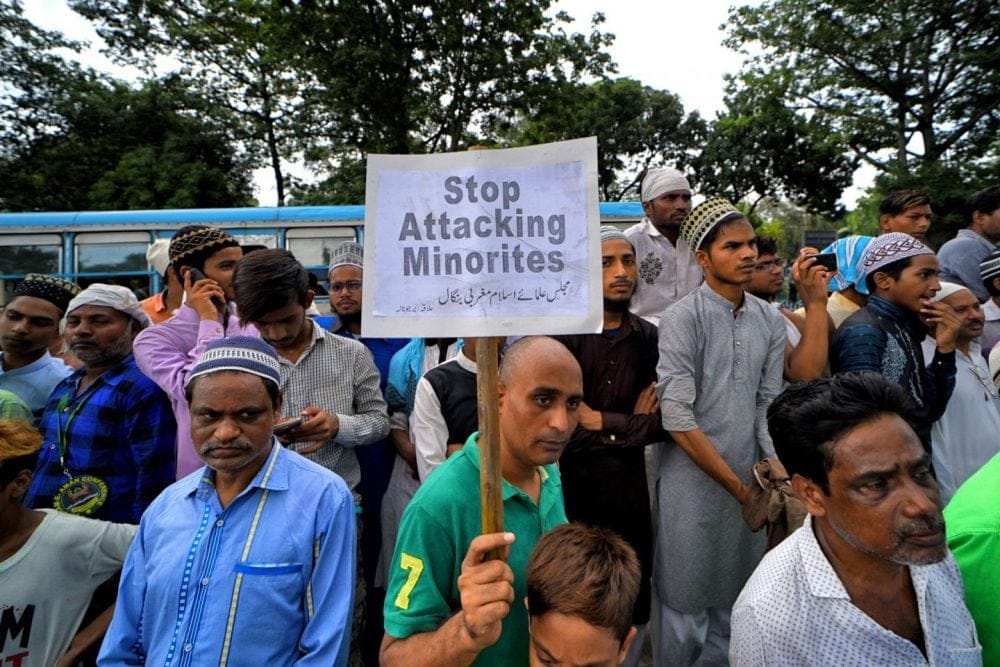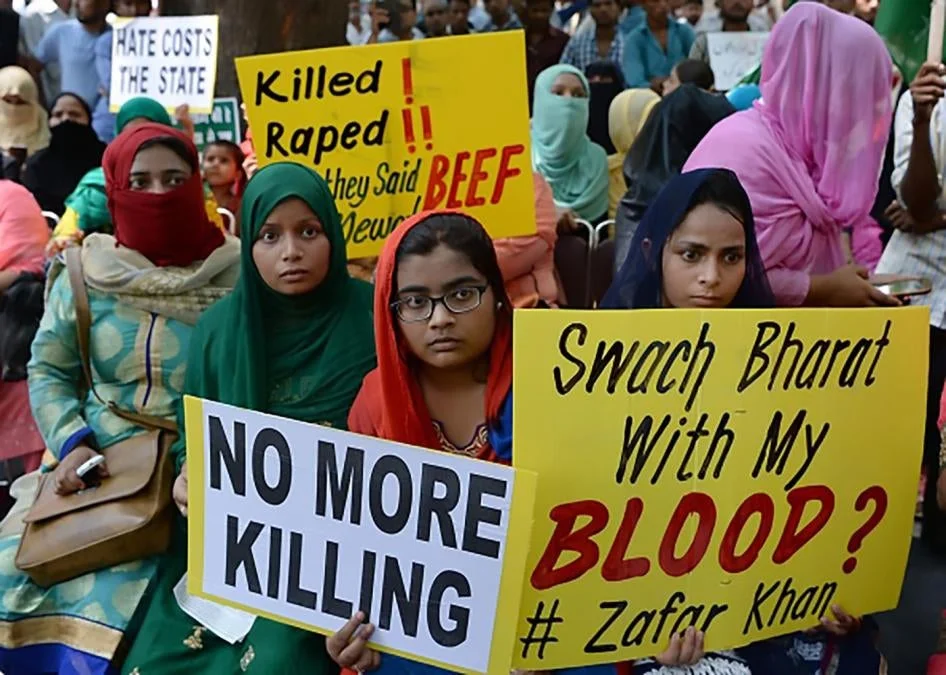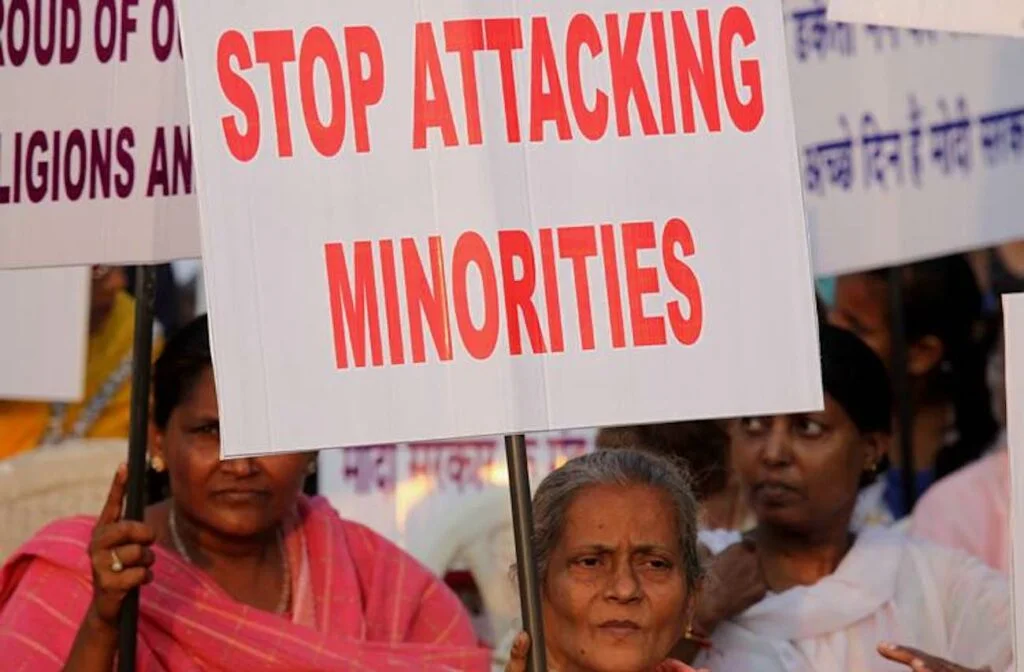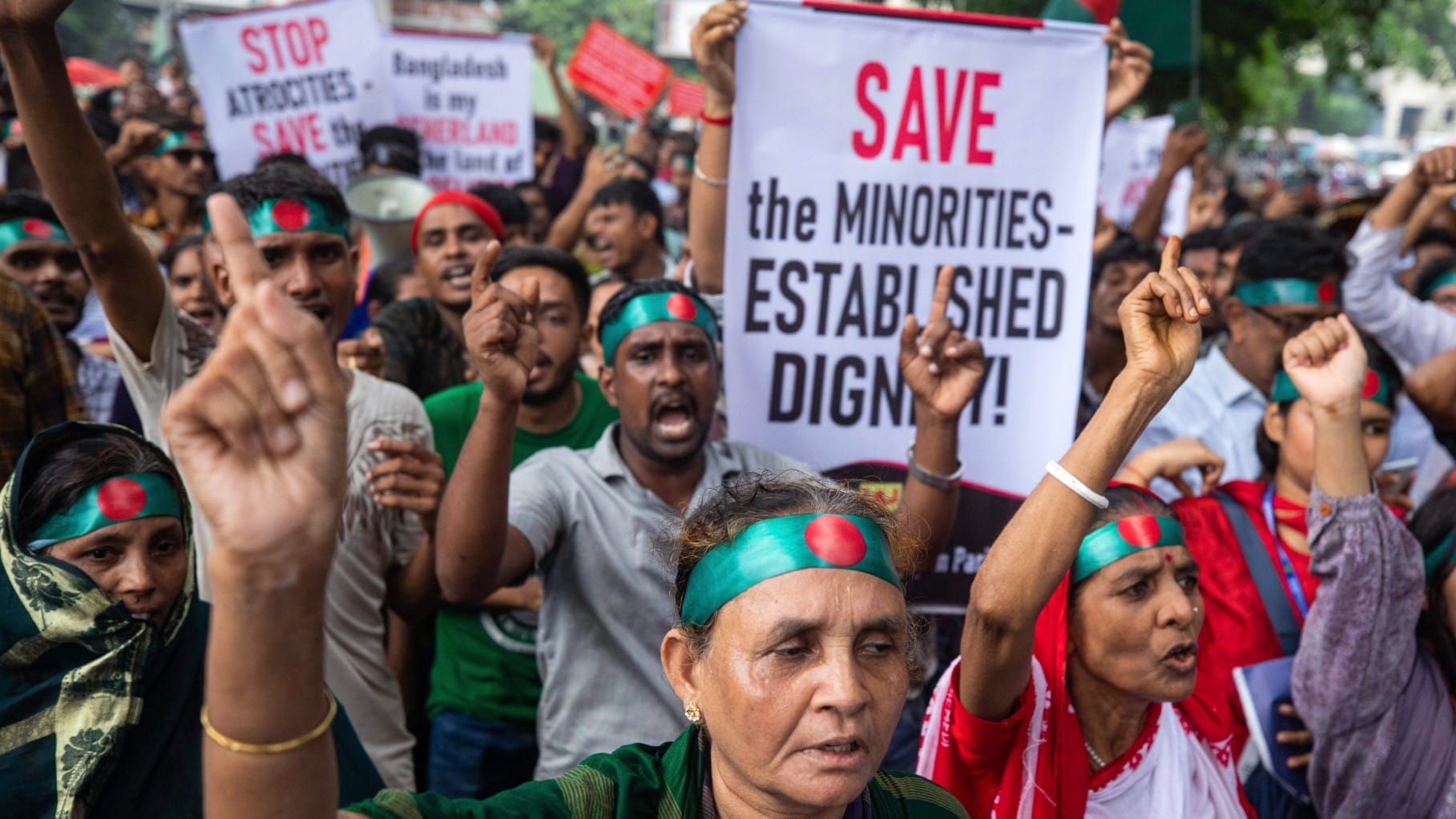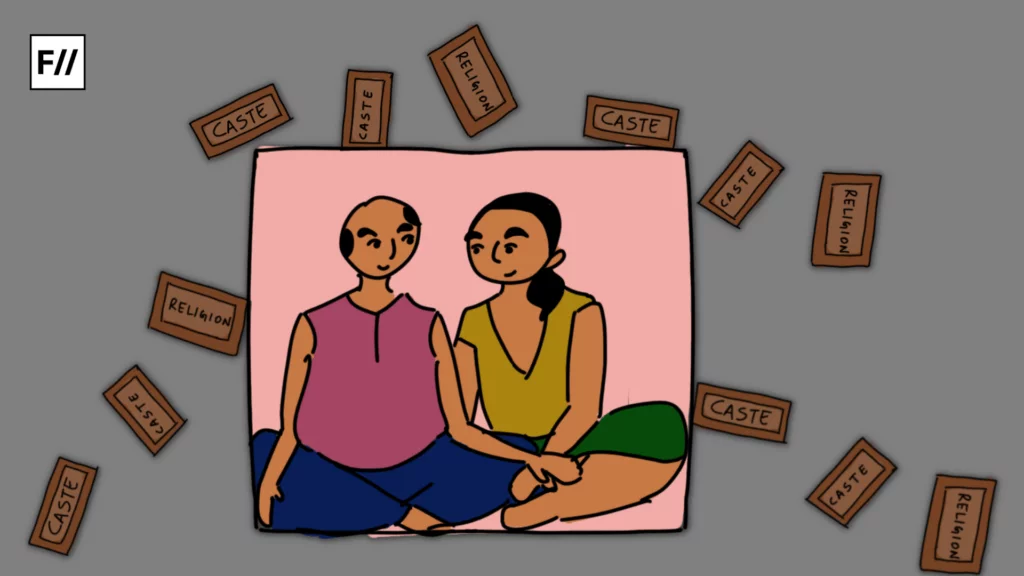Following the political unrest in Bangladesh after the ouster of Sheikh Hasina in August 2024, and the arrest of a Hindu monk, Chinmoy Krishna Das, in November; a wave of anti-Bangladeshi sentiment is taking over the eastern states of India, namely West Bengal, Tripura, and Assam. While positioned as a stance against the persecution of religious minorities, the anti-Bangladeshi wave in these states is steeped in Hindutva rhetoric, and when we take into account India’s own track record with its minorities, a contradiction of mammoth proportions emerges.
While positioned as a stance against the persecution of religious minorities, the anti-Bangladeshi wave in these states is steeped in Hindutva rhetoric, and when we take into account India’s own track record with its minorities, a contradiction of mammoth proportions emerges.
A hospital in West Bengal and some physicians across the state have refused to treat Bangladeshi patients after a video of the Indian flag placed on the ground at the entrance of Bangladesh University of Engineering and Technology (BUET) in Dhaka emerged online (which AltNews verified to be true). J N Ray Hospital in Kolkata announced its decision to bar Bangladeshi nationals from seeking treatment at their facility on November 30, and a hospital official urged other hospitals to do so as well.
The hospital’s decision came days after a prominent Kolkata-based physician announced on social media that he would stop treating Bangladeshi patients for the moment in response to the BUET University incident. Suvendu Adhikari, Leader of Opposition in the West Bengal Assembly, lauding the physician said, ‘I request the entire Indian medical community, businessmen and India lovers to boycott Bangladesh completely.’
Another doctor, an ENT specialist, in Siliguri, placed the Indian flag outside the entrance of his private practice with a message that asked patients, especially Bangladeshi patients, to offer pranam (salutations) to the flag or they wouldn’t be allowed to enter. The Kolkata hospital’s decision to bar Bangladeshi patients was followed by a hospital in Tripura doing so as well.
The decision to stop serving Bangladeshis snowballed, even affecting the service industry. The All Tripura Hotel and Restaurant Owners’ Association announced that Bangladeshi citizens wouldn’t be allowed to stay in hotels across the state starting December 2. Days later, hotels in three districts in Assam’s Barak Valley also decided to institute such a ban until attacks on Hindus in Bangladesh stopped. Hotels in West Bengal’s Malda also made a similar decision – Bangladeshi nationals will be barred from staying in hotels across the city unless they obtain permission from the administration or police.
Restrictions placed in August after the unrest in Bangladesh have led to fewer visas being processed, mainly only student visas and visas for those who require urgent medical care are being issued. This, along with travel restrictions, already posed challenges for Bangladeshis seeking medical care in India. However, such arbitrary bans by hospitals, medical staff, and the service sector will only exacerbate a bad situation.
India is a popular destination for Bangladeshis seeking medical care. An August 2024 report found that Bangladeshis account for 50-60 per cent of India’s medical tourism inflow. While the report predicted a 10-15 per cent reduction in footfall due to the unrest in Bangladesh and tensions between the countries, it predicted the numbers would climb back up by the end of the year. But this doesn’t seem to be the case as per stakeholders who spoke to Scroll.
India is a popular destination for Bangladeshis seeking medical care. An August 2024 report found that Bangladeshis account for 50-60 per cent of India’s medical tourism inflow.
These bans are not only ethically dubious but are also legally questionable. The bans instituted in West Bengal go against the West Bengal Clinical Establishment (Registration, Regulation, and Transparency) Act, 2017, whose provisions explicitly state that ‘no person shall be subject to any discrimination in any form or manner, by the clinical establishment in access to facilities, goods, care and services including admission, on any of the grounds of nationality……’
The Charter of Patients’ Rights and Responsibilities, proposed by the National Human Rights Commission (NHRC) for adoption by states, also bars discrimination based on ‘religion, ethnicity, linguistic or geographical/social origins‘ among other things. Penalising civilians for the political unrest in their country, something they have no control over, does nothing to protect minorities in Bangladesh. Except it only hurts individuals who rely on the Indian healthcare sector, especially those who cannot afford to seek decent medical care in any other country due to prohibitively high costs of medical care, as well as the associated costs of travel and accommodation.
Such arbitrary bans are also a slippery slope. If medical professionals and public establishments are allowed to refuse services to Bangladeshis based on their identity, they can also choose to discriminate against fellow Indians based on social identity. Settling a precedent where refusal of services due to the identities of patients/customers or perceived harm caused by other members who are part of the same social group is normalised will spell disaster for India’s marginalised communities that can be subjected to such discrimination with impunity in the future.
Hindutva’s selective concern for minorities
Another important aspect that must be considered is the political and ideological motives underpinning the championing of minority rights in Bangladesh, especially by Hindutva outfits and proponents. In states across India where protests have taken place over the treatment of minorities in Bangladesh and the arrest of Chinmoy Das, Hindutva outfits have often been at the forefront.
According to The Indian Express, a Hindutva outfit was involved in the security breach at the Assistant High Commission of Bangladesh in Agartala. The outfit was identified as Hindu Sangharsh Samiti, a group formed after Das’s arrest for ‘uniting the masses‘ to resist atrocities against Hindus. The leader of the group described the outfit as ‘an umbrella organisation of Hindutva groups‘ to The Indian Express and claimed similar such organisations were formed in every district of the country in the past weeks.
Minority rights have long been a Hindutva talking point, but only when the persecuted minorities are Hindu and the countries in which they face persecution are Muslim-majority countries.
Minority rights have long been a Hindutva talking point, but only when the persecuted minorities are Hindu and the countries in which they face persecution are Muslim-majority countries. Hindutva handwringing over minority rights is motivated by political and ideological agendas rather than rooted in any real concern for the persecution minorities face in South Asia. Hindutva’s list of persecuted minorities is limited to Hindus in Pakistan and Bangladesh because this helps to reinforce its narrative back home of India’s Hindu majority being persecuted and threatened by its Muslim population. Hindutva routinely weaponises minority concerns to fuel Islamophobia.
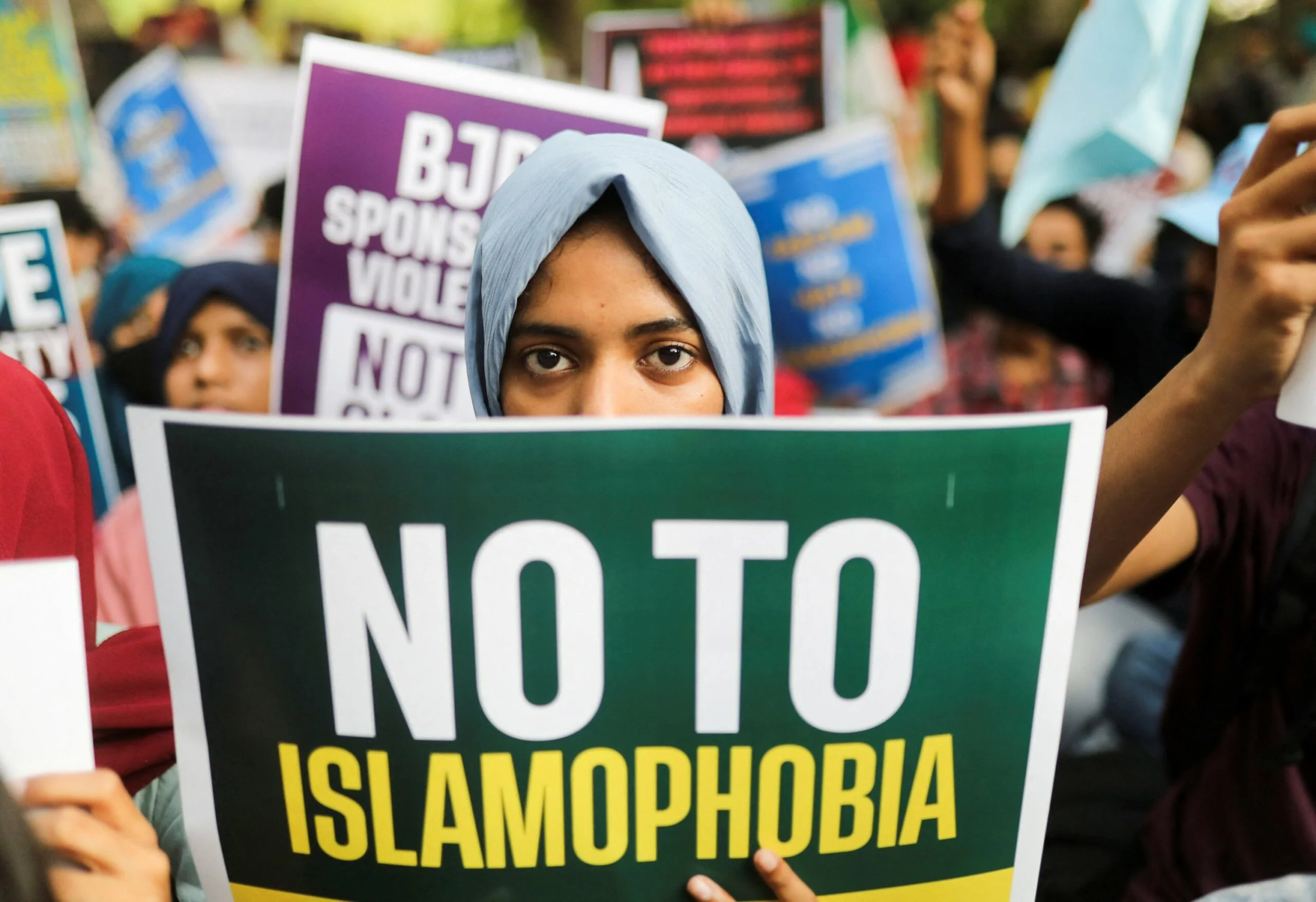
Rights of minorities in other neighbouring countries like the Uyghurs in China, Rohingyas in Myanmar, Ahmadiyyas of Pakistan, or Sri Lankan Tamils don’t find any mention or similar popular or institutional support. In fact, Rohingya refugees in India are routinely subjected to hate speech, detainments, and the looming prospect of refoulement.
In July 2024, the United Nations Committee on the Elimination of Racial Discrimination (CERD) called on India to end the arbitrary detention of Rohingya refugees, forcible deportations, and racial discrimination against them. As recently as May 2024, Manipur deported 77 Rohingya refugees, which a legal advisor to the International Commission of Jurists noted violates principles of non-refoulement.
Even the Citizenship (Amendment) Act of 2019, discriminates based on the religion of minorities and the majority religion of the countries from which they are fleeing persecution. The Act paves the way for accelerated citizenship for Hindu, Buddhist, Jain, Sikh, Parsi, and Christian minorities from Pakistan, Bangladesh, and Afghanistan fleeing persecution, who came to India before 2015.
Hindu minorities, such as Sri Lankan Tamils who faced persecution in predominantly Buddhist Sri Lanka, are also left out of the ambit of the amended citizenship law. Right-wing concerns over minority rights and persecution fall flat in the face of these contradictions. Popular and institutional responses to the ongoing Palestinian genocide further illustrate this discrepancy.
Hindutva proponents and organisations, and even the Indian government, have taken a pro-Israeli position, in a stark departure from India’s decades-long pro-Palestinian stance.
Hindutva proponents and organisations, and even the Indian government, have taken a pro-Israeli position, in a stark departure from India’s decades-long pro-Palestinian stance. The disregard for the persecution faced by Palestinians, while championing the rights of the persecuted in Bangladesh, betrays the thinly veiled ideological agendas that inform these responses.
The state of Indian minorities
India also has no leg to stand on when it comes to the plight of minorities. While expressing concerns over the precarious situation of minorities in Bangladesh, we would do well to look inward as well. In 2023, the United Nations Special Rapporteur on Minority Issues told the United States Commission for International Religious Freedom (USCIRF) ‘India risks becoming one of the world’s main generators of instability, atrocities and violence, because of the massive scale and gravity of the violations and abuses targeting mainly religious and other minorities such as Muslims, Christians, Sikhs and others. It is not just individual or local, it is systematic and a reflection of religious nationalism.’
Even the outrage over Chinmoy Krishna Das’ arrest in Bangladesh on charges of sedition is risible when minorities in India languish in prison under similar draconian laws. Following Das’ arrest, India’s External Affairs Ministry released a statement that expressed ‘deep concern‘ over his arrest. But in India, the likes of Umar Khalid, Gulfisha Fatima, Sharjeel Imam, and Stan Swamy (who died in state custody in 2021), among many others, have spent years in prison without a trial or being granted bail.
Data released by the Home Ministry in the Rajya Sabha in 2022 showed that of the 24,134 individuals charged with UAPA between 2016 and 2020, only 212 have been convicted. A staggering 97.5 per cent of accused have spent years in prison awaiting trial or bail.
Standing by Bangladeshi minorities while ignoring threats to minorities in India and the numerous social, political, and institutional injustices they face is unconscionable. Persecution faced by minorities should be called out and countries should take a stance against such human rights violations.
Calls in India by the public to end the persecution of minorities in Bangladesh are justified and necessary but only if this is rooted in an actual desire to protect minorities and not in furthering Hindutva’s divisive communal rhetoric and fearmongering in India. And when we, as Indians, champion minority rights in South Asia, we must first begin with India’s minorities.
About the author(s)
